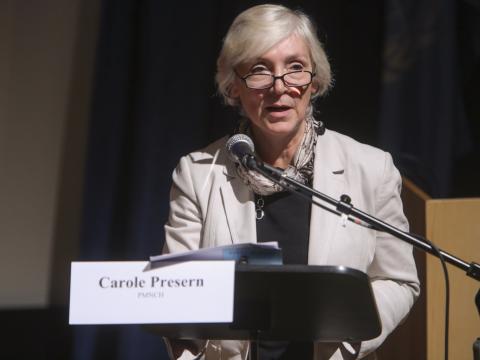The global investment framework

To mark the 20th anniversary of the 1993 World Development Report on Investing in Health, the Lancet today launches a special issue from the Commission on Investing in Health (special issue). This commission was established to review the 1993 conclusions in light of the 20 years of experience since this report, and to offer new policy guidance on the basis of those findings.
To collaborate with the Lancet Commission, The Partnership for Maternal, Newborn & Child Health, The World Health Organization and the University of Washington have led a major process with partners over the past year to develop the Global Investment Framework for Women’s and Children’s Health.
This Framework presents a compelling case for increasing investments in women and children’s health. It shows how, with an increase of US$5 per capita per year to 2035, in 74 high burden countries, we can achieve nine-fold social and economic returns in addition to millions of lives saved. The investment framework looks at the evidence we have on the interventions that work across the reproductive, maternal, newborn and child health continuum – and the impact they would have in the countries most affected by maternal and child mortality. By investing in these interventions, in an accelerated scenario, the analysis shows that it would be possible to avoid the deaths of 147 million children, 32 million stillbirths, and 5 million women by 2035.
I am pleased to share this analysis with you today along with the following package of products on the Global Investment Framework, all of which can be found on the PMNCH website.
- The Lancet Article on the Global Investment Framework
- The Global Investment Framework brochure
- A PMNCH Knowledge Summary on the Global Investment Framework
- A presentation on the Global Investment Framework
I would also like to share some sample tweets on the Global Investment Framework I hope you would use to create dialogue, discussion and awareness around key messages and key findings of this framework.
This is a notable piece of work, the product of a major inter-agency and multisectoral effort involving more than two dozen partners. It reflects the commitment of the PMNCH community to improving the wellbeing of women and children. This framework will be a valuable tool in our ongoing advocacy to ensure that women and children are positioned at the very heart of the post-2015 development framework.
*The Partnership for Maternal, Newborn & Child Health (PMNCH) is a global health partnership founded in 2005, hosted at the World Health Organization in Geneva which joins the maternal, newborn and child health (MNCH) communities into an alliance of more than 300 members to ensure that all women, infants and children not only remain healthy, but thrive. www.pmnch.org